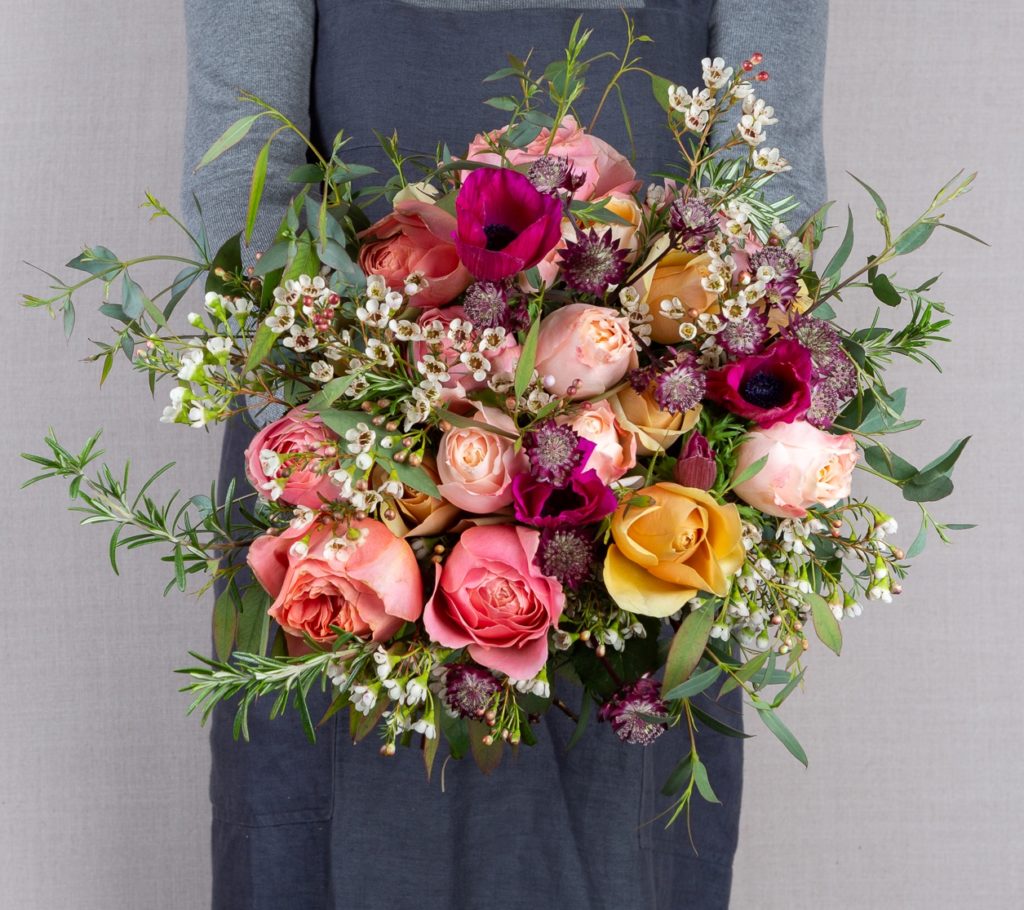Wild at Heart
How one woman set out to bring the true scents and colours of an English garden into our homes.

Imagine walking through an English country garden in June. The undercurrent of bees, kaleidoscope of colour and heady scent that’s so enveloping in the heat of summer. Now take away those beautiful scents of rose, jasmine and honeysuckle, remove the soft smell of sweet peas and fragrant citrus of freesias. Wouldn’t you feel a bit cheated?
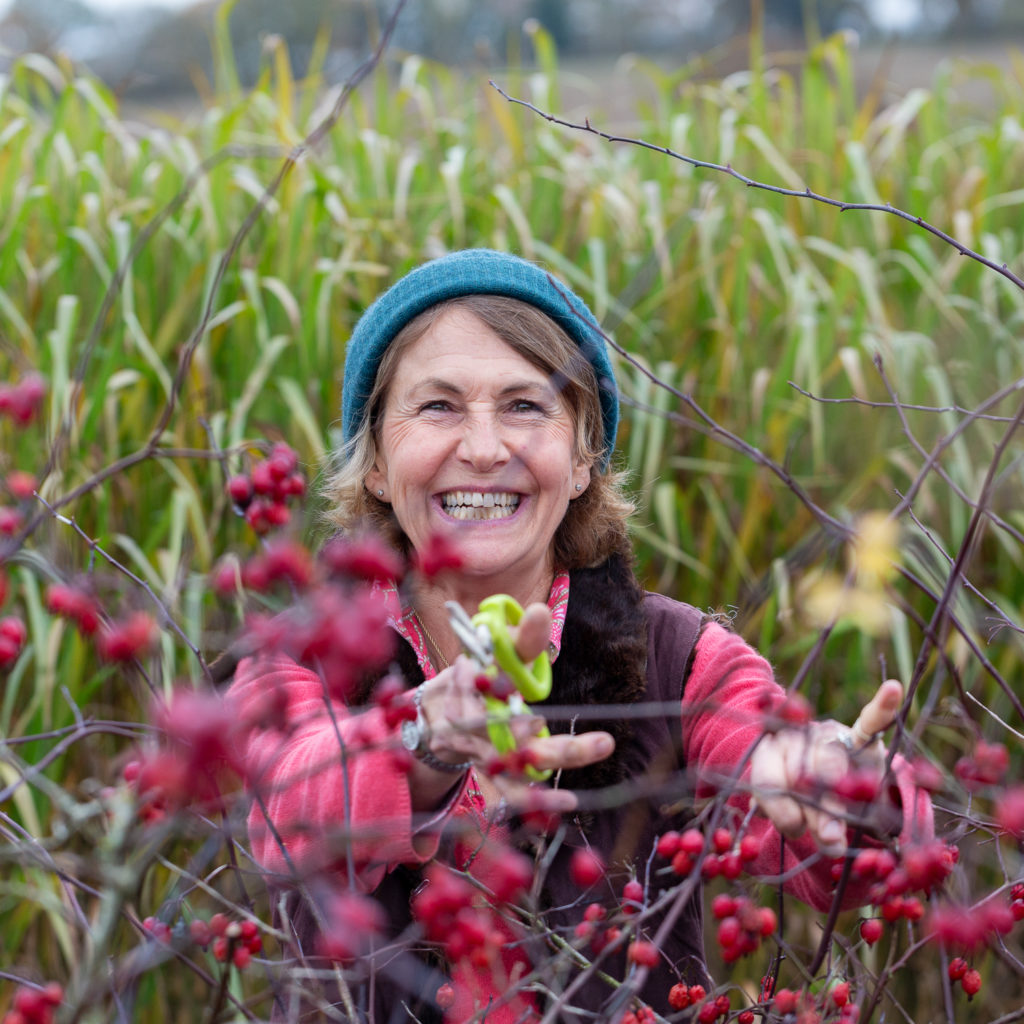
Scent is so powerfully linked to memories and emotion, setting and experience. Rosebie Morton, founder of the Real Flower Company remembers growing up in her grandmother’s garden, knee high to a grasshopper with roses up to her head. “We were from an army family that moved constantly, but wherever we went my mother would create an English garden in the most improbable locations. They were miniature landscapes shaped and tended, filled with scented reminders of home.”
Which explains her frustration as a young adult discovering that modern cut flowers have virtually no scent, “most commercially grown flowers have had their scent gene genetically removed to make them hardier and last longer. I felt robbed, why would anyone want to buy a rose with no scent?”
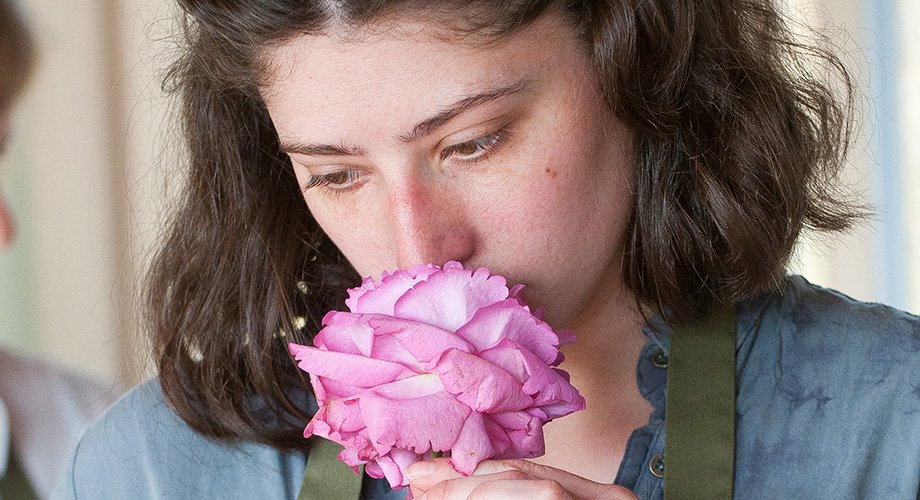
It turns out quite a few people did, but they had little choice. This is where Rosebie comes in. Starting out by growing a few rose bushes in her walled garden, she researched many of the forgotten English varieties that had been overlooked in favour of the new generic rose with its impressive shelf life and crisp perfection. “Roses should be celebrated for their natural charm, scent and individuality, like snow-flakes, every rose is different, each small blemish being part of its beauty.”
What was considered passionate by some, was considered mad by others, Rosebie now grows 30,000 scented roses across 17 different varieties, with roughly 150 species of English flowers including a huge range of Dahlias, Peonies and Hydrangeas, plenty of annuals, wild-flowers plus aromatic herbs and foliage on 12 acres of chalk soil nestled in the Hampshire countryside. On average she cuts 300,000 stems a year.
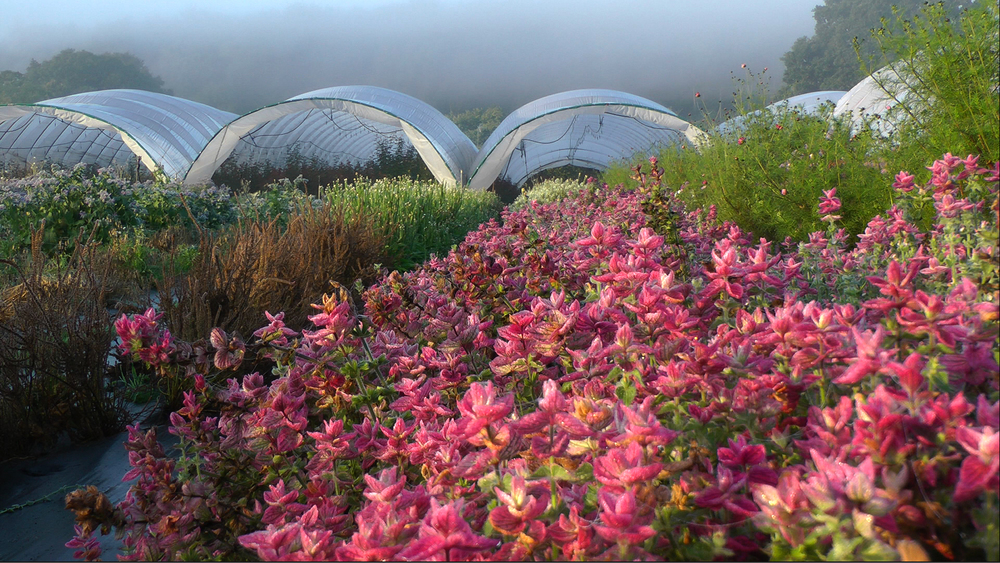
Yurtel are lucky enough to be working together with the Real Flower Company for Glastonbury Festival so we had a few questions for the floral pioneer.
You started growing and selling flowers back in 1998. How have things changed since then?
People want flowers with real character. It’s like the slow food movement, we’re now more interested in the provenance of things, as well as buying into a set of values. We grow everything ourselves, we’re as organic as possible, we’re not factory driven, our pickers are our friends and we put a lot of care into the bouquet you’re receiving. It’s a bit like a recipe, making sure the ingredients, the flowers, foliage and herbs are just right.
Why did everyone else think you were mad to grow scented flowers?
Back in the day we were doing something no-one else was doing. Most growers don’t grow their own or entertain growing garden roses as they’re such prima donnas. We get 10 stems per plant whilst the average commercial grower gets 30. But as soon as we started people really got it. Scent is part of the dying process, it’s a living, delicate plant that opens fully and then dies. It’s ethereal and special.
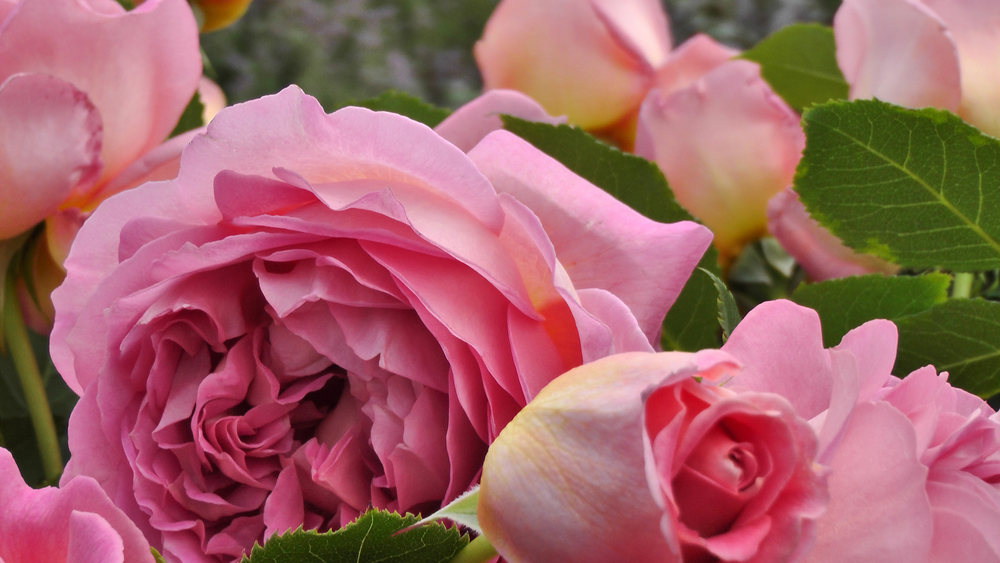
You also grow flowers out in Kenya, how did that come about and how different is that crop?
What grows well here doesn’t grow well there. It came about because the season here is short – June to October. We looked to the southern hemisphere and found a Kenyan farmer who was looking to do something different. It took several years to get it going but they’ve gone from 3000 roses to half a million which they supply around the world. The most successful is a Cafe Latte rose which has a mushroom sepia, pinky colour. The nude colours seem to work better. The farm is carbon negative, climate positive, employs 500 people and has established a local school and hospital.
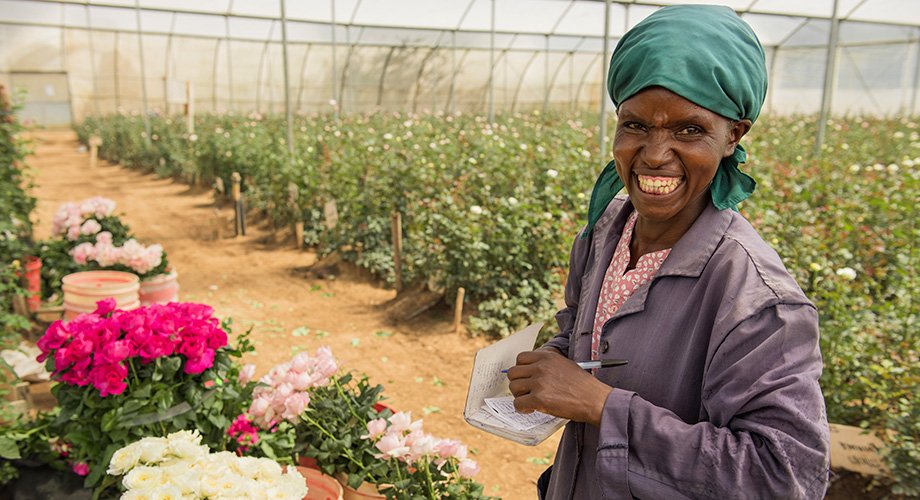
If you were to give some advice to the novice gardener what would you suggest they start with?
Lots of roses! The Margaret Merril is very much an English rose, we took her to Kenya which she wasn’t so keen on, but her daughter Chandos Beauty is bullet-proof, very easy and very beautiful. Remember nature doesn’t judge you, just get your hands dirty and don’t worry.
Are there trends when it comes to roses?
There are but we tend to grow varieties that are timeless, something that looks like it’s just picked from an English country garden. At the moment we’re getting lots of requests from brides for nude, smoky colours and coral.
What flowers did you have for your wedding bouquet?
It was all about the scent. We got married in June so roses, freesias and herbs.
Do you have a favourite flower?
The Margaret Merril Rose, in fact I’m trying to bottle that scent. It has a lemony, uplifting delicious smell. I also love poppies with their ethereal paper petals.
What’s your favourite scent?
When we’re visiting our sister farm in Kenya we try to get down to the island of Lamu. The gardenias there with their frangipane smell take me straight to Asia and exotic places. Lily of the Valley brings me back to growing up as a child, as do sweet peas and the smell of cut grass.
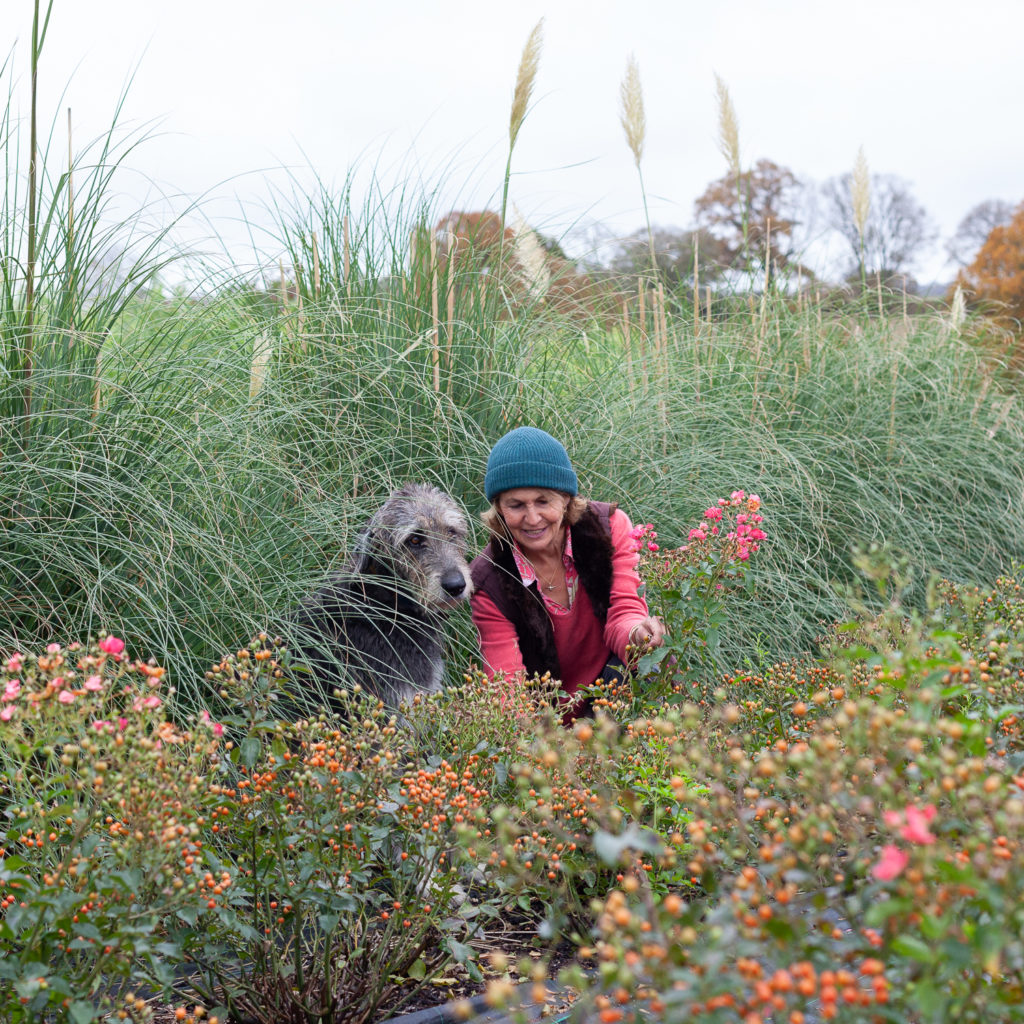
You’re bringing a feel of the English country garden to Yurtel for Glastonbury Festival. What can we expect?
Our ethos is scented flowers with a natural, loose, just picked from the garden look. We use the very best of what is in season at that moment. Glastonbury is the perfect time for English flowers so we’ll have lots of scope. Some of the stars of the arrangements will be our garden roses including Margaret Merril, our signature incredibly scented Ivory blush rose and its daughter Chandos Beauty, a gorgeous peachy/apricot rose. These will be framed by long trails of Rosa glauca, an amazing burgundy and grey coloured dogrose. Umbellifers such as Ammi Visnaga will be in full flower along with Verbena Bonariensis and Cephalaria the giant pale lemon coloured Scabiosa. We always incorporate herbs into our arrangements so there will be a generous selection of Rosemary, Mint and Rose of Attar scented Geranium which demands attention by rubbing its leaves between ones’ fingers.
